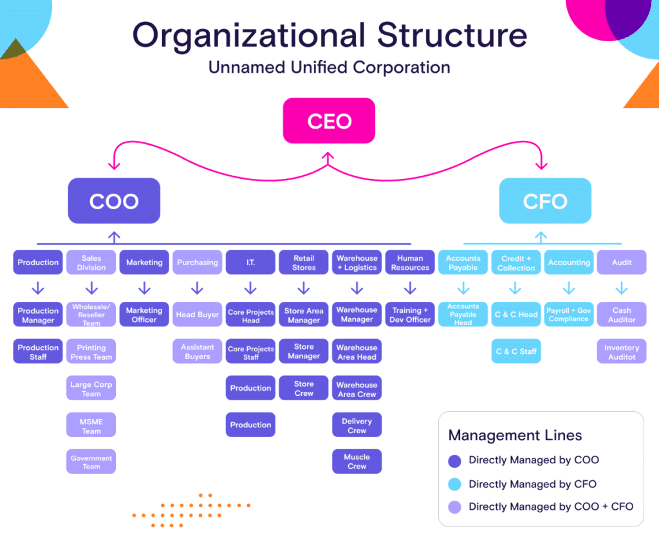We all know the different breeds of CEO, even if we have different names for them. But one type of CEO always boasts the marmite factor.

FTSE AIM investors — indeed, small cap shareholders in general — put a lot of stock by their CEOs.
For context, I can’t remember who’s taking over from Legal & General CEO Nigel Wilson, but I’m happy to retain LGEN in my SIPP for that sweet, reliable dividend. Half the time, it doesn’t make much difference who is CEO of a FTSE 100 dividend stock, as long as they are relatively competent and can knot their own tie.

It’s the opposite in the small cap space. Smaller companies live and die by their leadership, and the buck stops with the Chief Executive Officer. When you have hundreds of companies on offer, directional control is often at least as important as corporate assets — sometimes more so.
Buckle up for some more questionable financial education.
The CEO group stage
Broadly, I split CEOs into the following groups:
Visionary — rare CEOs with a big picture mindset looking to disrupt an industry forever. Innovation is the name of the game; Nvidia and Apple were both once penny stocks and only succeeded because of the people at the top.
Turnaround Maestro — a company has an excellent flagship asset, which isn’t delivering. Or its flagship just failed. These types of CEOs come in to steady the ship and bring it back to an even keel.
Aimbot Operator — where processes have spiralled and benefits are questionable, these CEOs come in and bring some brutal efficiency to operations. Investors like them, employees don’t.
The Finance Guy — these CEOs have 25 years of experience in London as an accountant. They are either incredibly boring OR interesting people, and their skill is in making the numbers work in tight periods.
Michael Scott — weirdly effective. Nobody knows how, but the company works and the profits roll in. Don’t ask any questions, it’s better that way. Everyone likes working at the company, by and large.
Industry Expert — these CEOs know everything about their business. Literally everything, and everyone. It’s best to keep them reined in by an accountant before they order 32 drilling programs.
Chameleon — can somehow embody all of these qualities, when necessary, but this is exceptionally uncommon. Usually, they burn out after a few years (hopefully after making some cash).
Real Housewife — will dilute you to oblivion while retaining an excessively high salary and promising never-ending jam tomorrow. You pay for them to live in a house with an indoor swimming pool.
If you read through these descriptions, you can probably put the CEOs at your various investments into one of these pigeonholes — though most have qualities across a couple of descriptions. While everyone wants a Chameleon and nobody wants a Real Housewife, usually you get someone in the middle.
The thing is, though, that we can all agree that a Chameleon is great news — and a Real Housewife is useless. And also, it’s often a case of horses for courses; The Finance Guy can be just what’s needed at specific companies in today’s market, though back in 2021 you’d probably prefer an Industry Expert.
Where it gets dicey is the final category.
The marmite player
The Activist — no, this CEO isn’t dyeing their hair green and chaining themselves up to a tree. The activist spends masses of time and effort marketing their assets to the retail investor base. And they’re usually marmite characters in the small cap space.
Why is this? Fundamentally — and I have masses of experience in marketing — it’s because the philosophy behind marketing is to get people to buy stuff (in this case shares). This doesn’t involve dishonesty, because the genius of marketing is that you deliver a positive message over and over again highlighting the strength of a business case.

Investors pile in, the share price and market capitalisation rise, and all being well the company rides off into the sunset. The problem is that well-run businesses should never rely on one employee (even the CEO) and when he/she eventually leaves, the share price starts to fall because the driving force that investors rallied behind has gone.
You can see this happen in the small cap space every year. But here’s my defence for the activist CEO:
It’s 2023, not 2021. While the market may be starting to recover, those green shoots are still fragile. Between 2009 and 2022, the Bank of England engaged in Quantitative Easing (QE), buying up £895 billion of bonds. The pandemic-era furlough scheme saw households generate £140 billion in forced savings — and investors were sitting at home with nothing to do.
It’s not hard, in an environment where money is being thrown around like confetti, to get hold of some investor cash and watch your share price rise.
In 2023, would-be retail investors are facing a cost-of-living crisis, supercharged mortgage costs, rising car insurance, food prices which at the shop floor level seem to have nearly doubled…
And yes, for most readers here at Investing Strategy, the cost-of-living crisis will be unlikely to have had much of a material impact on your lives. But the base fact is that every extra pound spent on living is one not going into investing — and in reality, it’s the risk assets that suffer most. For context, any sane person facing reduced disposable income for investing will allocate more to the blue chips; this is just common sense.
For a decent chunk of time this year, you could get 6.2% risk-free from NS&I. In this environment, investors are not coming to small cap companies — small cap companies must come to investors.
Enter the Activist CEO. Where the general small cap space struggles (unless they get lucky), the Activist CEO is on Twitter, on Telegram, on YouTube, engaging in near-daily PR. This works, and will continue to work, because (surprisingly?) investors are more comfortable when the CEO is unafraid to get behind a camera. And they almost always have skin in the game.
Going into 2024, given the choice between a slowly sinking share price and a CEO making the investment case heard, I’d choose the second option every time.
This article has been prepared for information purposes only by Charles Archer. It does not constitute advice, and no party accepts any liability for either accuracy or for investing decisions made using the information provided.
Further, it is not intended for distribution to, or use by, any person in any country or jurisdiction where such distribution or use would be contrary to local law or regulation.
